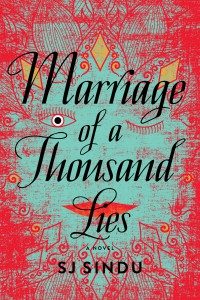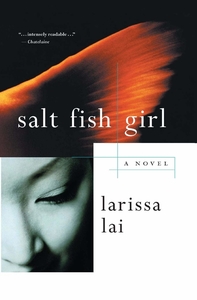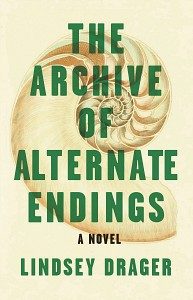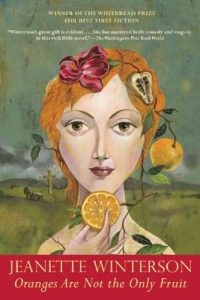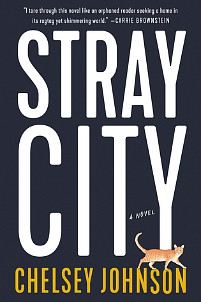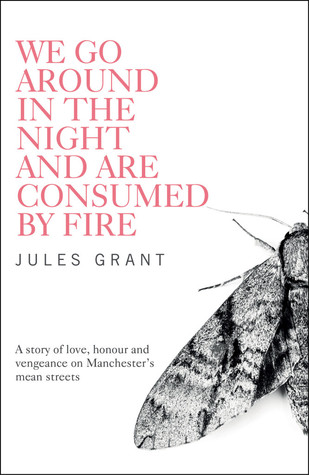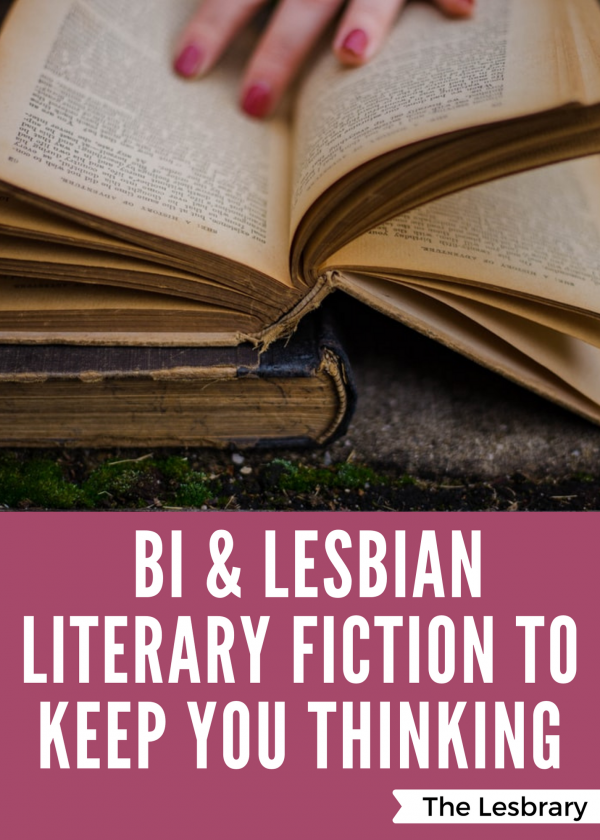
When I say that I read mostly bi and lesbian literature, people often assume that means F/F romance. Although I like the occasional romance novel, the truth is that it makes up very little of my reading life. There are sapphic books in every genre: science fiction, fantasy, mystery, nonfiction, etc. One of the genres I gravitate towards is bi and lesbian literary fiction—which is a tricky thing to describe. What makes a book literary fiction? Well, usually it is more character-driven than plot-driven. It may deal with “big ideas” and concentrate more on questions than on action. It’s often seen as complex and “well-written”—but all of these qualities are subjective. I’m not interested in getting a perfect definition. Instead, I want to offer some book recommendations that will likely appeal to you if you read books that are marketed as “literary fiction.”
This is in no way a complete list of every bi and lesbian literary fiction book out there. They’re just some of my favorites. To simplify, I decided to leave out the “classics” of lesbian literature: The Well of Loneliness, The Color Purple, Rubyfruit Jungle, and other books published in the early days of queer lit. These are not all recent releases, but they are biased towards books that have come out in the last decade or two. Did your favorites make the list?
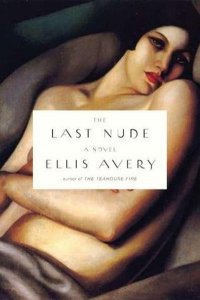 The Last Nude by Ellis Avery
The Last Nude by Ellis Avery
This is historical fiction based on Tamara de Lempicka, and it made me fall in love with Ellis Avery as an author and Tamara de Lempicka as an artist. It’s about the artist’s relationship with one of her models, Rafaela, who was the inspiration for six paintings. It’s beautiful and melancholy, and completely pulls you into 1920s Paris. It will make you think about art, doomed romance, discovering your sexuality, our relationships to our bodies, queer history, and the nature of betrayal.
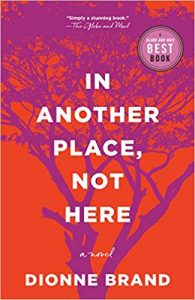 In Another Place, Not Here by Dionne Brand
In Another Place, Not Here by Dionne Brand
This is about two women in Trinidad: one a sugar cane worker, another an activist attempting to unionize the workers. They are immediately drawn to each other, but their relationship is threatened by outside forces, including racism and homophobia. This book will make you think about belonging, and feeling caught between (and left outside of) two communities. It will make you think about immigration, and what it means to be “illegal,” about justice and belonging, and about individual choices in an unjust system.
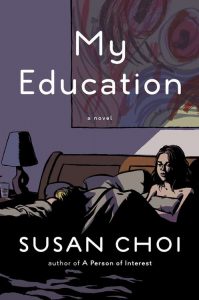 My Education by Susan Choi
My Education by Susan Choi
This books at first glance seems to be the very stereotype of a literary novel: a young university student begins taking classes with a professor rumored to sleep with his students. They begin sleeping together. When Regina meets his wife, however, she is far more interested in her—and that’s the dynamic at the heart of this novel. This book will make you think about trainwreck relationships—the kind you can’t quite resist, about flawed main characters, and about the mistakes you make in early adulthood.
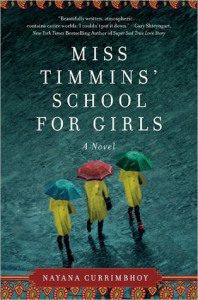 Miss Timmins’ School for Girls by Nayana Currimbhoy
Miss Timmins’ School for Girls by Nayana Currimbhoy
This is an atmospheric, absorbing book about teaching at a boarding school in India in the 1970s during the monsoon season. Sheltered Charulata is only a handful of years older than the students, but she changes quickly, especially when she has two sordid, tragic love affairs (one male partner, one female). Then a student turns up dead, and the mystery element begins. This will make you think about coming of age and discovering your own identity.
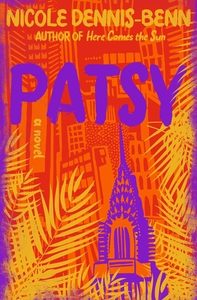 Patsy by Nicole Dennis-Benn
Patsy by Nicole Dennis-Benn
Patsy has just taken her chance to move to the U.S., leaving her small Jamaican hometown behind—as well as her 5-year-old daughter. Patsy follows the main character and her daughter over years, and how they both reconcile with this decision, and what it means for their relationship. It will leave you thinking about family, independence and interdependence, gender, and sexuality. Be sure to also check out her previous novel, Here Comes the Sun.
 The Pull of the Stars by Emma Donoghue
The Pull of the Stars by Emma Donoghue
This title is standing in for a lot of Donoghue books: she’s one of the big names in lesbian literary fiction. The Pull of the Stars is set during the 1918 pandemic in a small hospital ward, which is either exactly what you want to read right now, or exactly the opposite. It will leave you thinking about the parallels between that pandemic and ours, about justice in healthcare, pregnancy and childbirth, and motherhood.
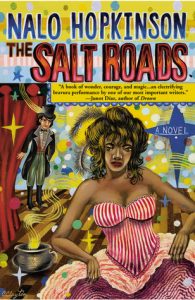 The Salt Roads by Nalo Hopkinson
The Salt Roads by Nalo Hopkinson
This book is an experience. It follows three women in different countries and time periods: Mer in 18th century Haiti, Jeanne in 1880s France, and Meritet in ancient Alexandria. Binding the three together is the spirit Ezili, who inhabits each of them at different times. This book has an F/F sex scene in the first 15 pages, and let me tell you, when I was assigned this in university, I was not expecting that. This book will leave you thinking about freedom and oppression, what’s worth sacrificing, misogyny and racism throughout time, sexuality, spirituality, the beauty of language, and so much more.
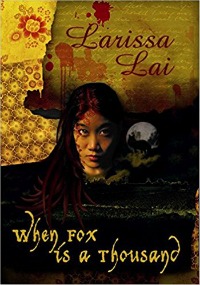 When Fox is a Thousand by Larissa Lai
When Fox is a Thousand by Larissa Lai
This is told in three perspectives: the eponymous fox, counting down until her thousandth birthday when she will acquire power and knowledge; Yu Hsuan-Chi, a real-life poetess from 9th century China; and Artemis, a young woman in modern-day Vancouver. This is told like folklore, with fables woven throughout. It’s beautifully written, I firmly believe it should be considered a classic of lesbian literary fiction. This will make you think about toxic friendships, about activism uninformed by compassion and respect, and about queering folklore.
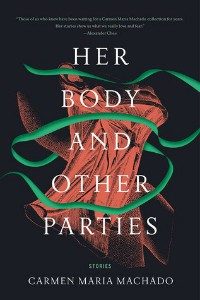 Her Body and Other Parties by Carmen Maria Machado
Her Body and Other Parties by Carmen Maria Machado
This is a beautiful and unsettling collection that takes familiar stories and exposes the misogyny beneath them. They are thoughtful, metaphorical stories: women who fade away until they are imbued into objects, lists of lovers that turn into a dystopian narrative, and urban legends transformed. Read this to think about gender, stereotypes (a writer is accused of writing a stereotype, and she explains that she’s writing about herself—her gay, anxious self), folklore, feminism, and more.
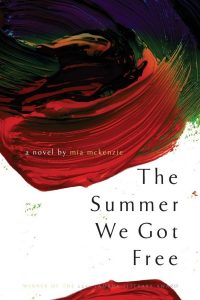 The Summer We Got Free by Mia Mckenzie
The Summer We Got Free by Mia Mckenzie
This book feels like the moment before a summer thunderstorm. It’s about a family dealing with the fallout from a tragedy they can’t bare to talk about. We alternate between Ava’s childhood, when she was free-spirited and passionate, and her closed-off, practical adult self. Read this to think about race and racism (particularly anti-Black racism), societal norms, growing up, family secrets, and the possibility of kissing a strange woman who shows up at your doorstop.
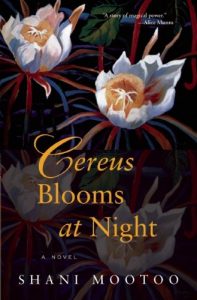 Cereus Blooms at Night by Shani Mootoo
Cereus Blooms at Night by Shani Mootoo
Mala is sent to Paradise Alms House after she is declared unfit to stand trial for suspected murder. Slowly, she begins to unravel her life story to her nurse, Tyler (a gender-nonconforming person of indeterminate gender). Two queer love stories emerge: one in Mala’s past, one with Tyler. This story will make you think about homophobia, racism, and the intersections between them; about inter-generational queerness; and about hope.
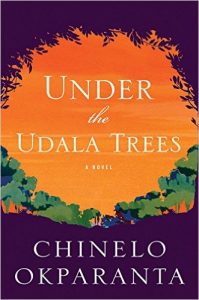 Under the Udala Trees by Chinelo Okparanta
Under the Udala Trees by Chinelo Okparanta
This story is about two star-crossed lovers in Nigeria: they’re both girls, and from different ethnic communities. They are thrown together during civil war—but this is not a romance, and they are torn apart. Ijeoma has to learn what do about this part of herself that has to be hidden for her safety and acceptance. Read this to think about the the dangers of being out in different places around the world, to consider how much is worth sacrificing to be your whole self, and how these impossible choices may change over time.
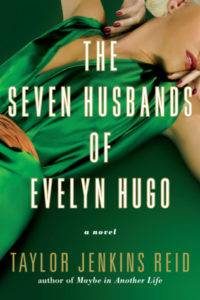 The Seven Husbands of Evelyn Hugo by Taylor Jenkins Reid
The Seven Husbands of Evelyn Hugo by Taylor Jenkins Reid
Monique is shocked when Evelyn Hugo picks her to pen her biography: Hugo is an aging starlet whose biography is sure to be a bestseller, and Monique is an unknown writer with some magazine credits. Still, she takes the opportunity, and listens to Hugo unravel her life story, which reveals how she stayed closeted about her sexuality (bisexual) and ethnicity (Latina). Read this to think about the cost of fame, bi-erasure, complex female characters, racism, and 1950s Hollywood.
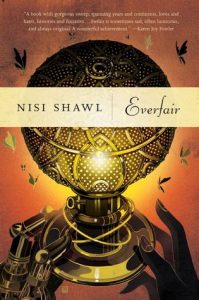 Everfair by Nisi Shawl
Everfair by Nisi Shawl
You might find this in the sci-fi/fantasy section, but this is more alternate history than steampunk. It’s a reimagining of the colonial history of the Republic of Congo, and also follows a tumultuous, decades-long relationship between two women of very different backgrounds. Read this to think about colonialism, racism, white “passing,” complicated F/F relationships, intersectionality, war, and the story structure of including a staggering amount of point of view characters.
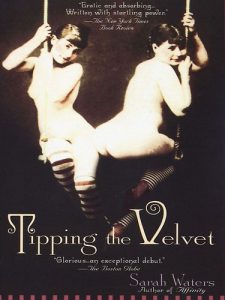 Tipping the Velvet by Sarah Waters
Tipping the Velvet by Sarah Waters
Sarah Waters is my favorite author, so this is a stand-in for all of her books, but I especially recommend picking up Fingersmith, too. Tipping the Velvet is a “lesbo-Victorian romp” (that’s the author’s description) about a small-town girl falling for a male impersonator and joining her on the road. Read it to think about being queer in Victorian England, male impersonators and gender, first loves, socialism, relationships that develop from friendships, and love after loss.
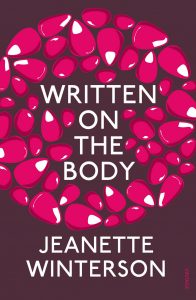 Written on the Body by Jeanette Winterson
Written on the Body by Jeanette Winterson
Jeanette Winterson is one of the big names in lesbian literary fiction, so there are a lot of her books I could have included, but I especially recommend this and The Passion. Written on the Body is remarkable for not stating the gender of the protagonist explicitly at any point, but it’s generally regarded as a classic of lesbian literary fiction. It’s about the narrator’s adoration of Louise, a married woman, and singing the praises of her and her body. Read this to think about gender assumptions and signifiers, and about being passionately in all-consuming love.
Bonus book:
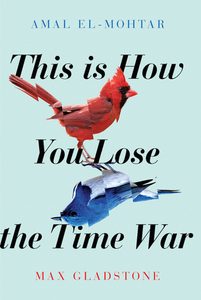 This Is How You Lose the Time War by Amal El-Mohtar and Max Gladstone
This Is How You Lose the Time War by Amal El-Mohtar and Max Gladstone
Okay, you’ll almost certainly find it in the science fiction section: it’s about two women on opposite sides of a war across space and time, leaving each other letters—at first taunting, and then romantic. The letters between Red and Blue are so beautiful and lyrical that you’ll forgive me for including it on this list. Read this to think about poetry and love letters, war and time travel, and recognizing the humanity of people we’ve been taught to dehumanize.
Those are my picks for bi and lesbian literary fiction that will leave you with much to ponder! This is only a brief introduction: there are many more sapphic literary works, and more are being published all the time. If you pick up any of these, let me know what you think on Twitter! I’d love to hear what you think. Feel free to also offer any recommendations of bi and lesbian literary fiction you think I’d enjoy! I’m always looking for more.
This article originally ran on Book Riot.

